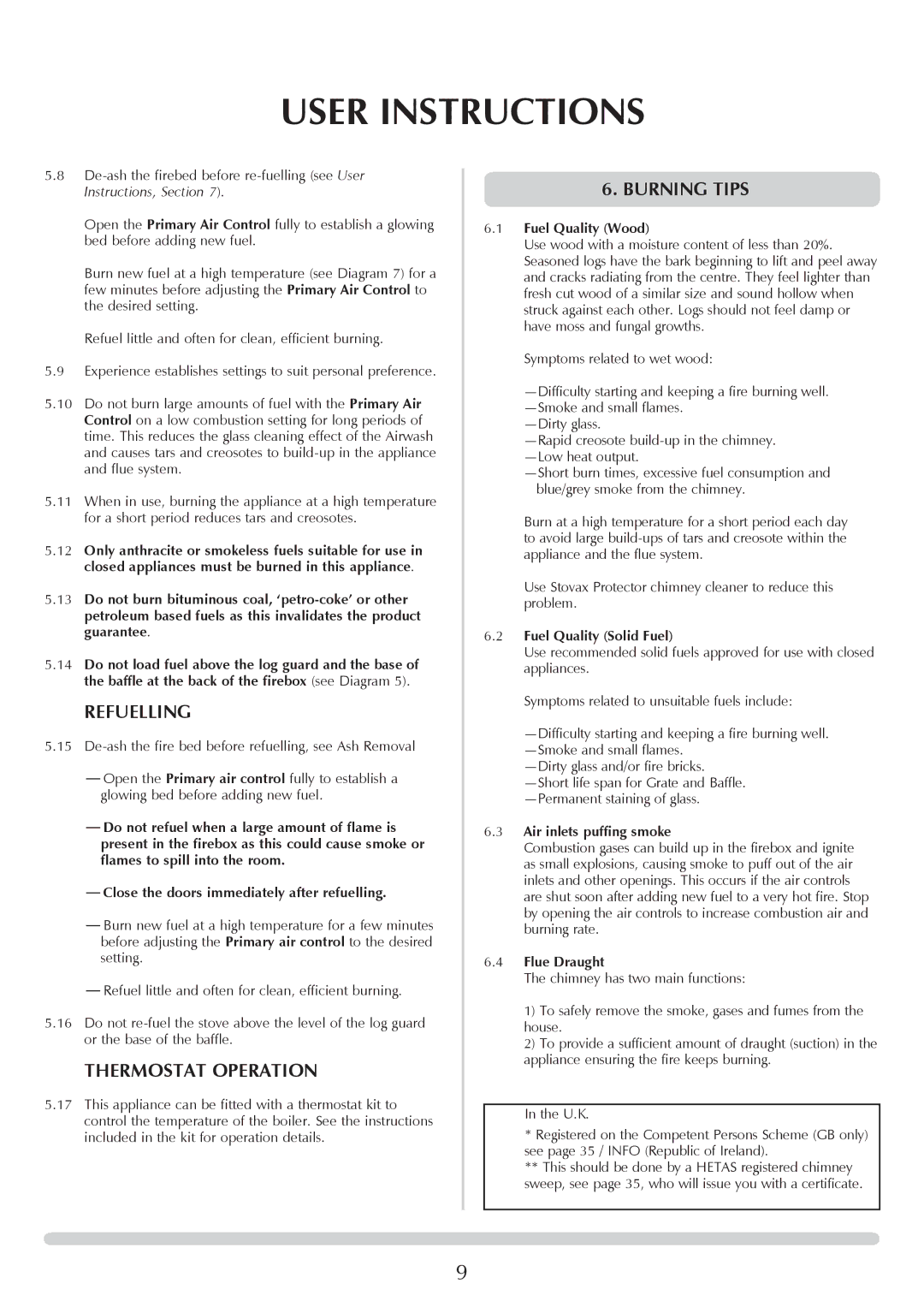
USER INSTRUCTIONS
5.8
Open the Primary Air Control fully to establish a glowing bed before adding new fuel.
Burn new fuel at a high temperature (see Diagram 7) for a few minutes before adjusting the Primary Air Control to the desired setting.
Refuel little and often for clean, efficient burning.
5.9Experience establishes settings to suit personal preference.
5.10Do not burn large amounts of fuel with the Primary Air Control on a low combustion setting for long periods of time. This reduces the glass cleaning effect of the Airwash and causes tars and creosotes to
5.11When in use, burning the appliance at a high temperature for a short period reduces tars and creosotes.
5.12Only anthracite or smokeless fuels suitable for use in closed appliances must be burned in this appliance.
5.13Do not burn bituminous coal,
5.14Do not load fuel above the log guard and the base of the baffle at the back of the firebox (see Diagram 5).
REFUELLING
5.15
5.16Do not
THERMOSTAT OPERATION
5.17This appliance can be fitted with a thermostat kit to control the temperature of the boiler. See the instructions included in the kit for operation details.
6.Burning tips
6.1Fuel Quality (Wood)
Use wood with a moisture content of less than 20%. Seasoned logs have the bark beginning to lift and peel away and cracks radiating from the centre. They feel lighter than fresh cut wood of a similar size and sound hollow when struck against each other. Logs should not feel damp or have moss and fungal growths.
Symptoms related to wet wood:
Burn at a high temperature for a short period each day to avoid large
Use Stovax Protector chimney cleaner to reduce this problem.
6.2Fuel Quality (Solid Fuel)
Use recommended solid fuels approved for use with closed appliances.
Symptoms related to unsuitable fuels include:
6.3Air inlets puffing smoke
Combustion gases can build up in the firebox and ignite as small explosions, causing smoke to puff out of the air inlets and other openings. This occurs if the air controls are shut soon after adding new fuel to a very hot fire. Stop by opening the air controls to increase combustion air and burning rate.
6.4Flue Draught
The chimney has two main functions:
1)To safely remove the smoke, gases and fumes from the house.
2)To provide a sufficient amount of draught (suction) in the appliance ensuring the fire keeps burning.
In the U.K.
*Registered on the Competent Persons Scheme (GB only) see page 35 / INFO (Republic of Ireland).
**This should be done by a HETAS registered chimney sweep, see page 35, who will issue you with a certificate.
9
